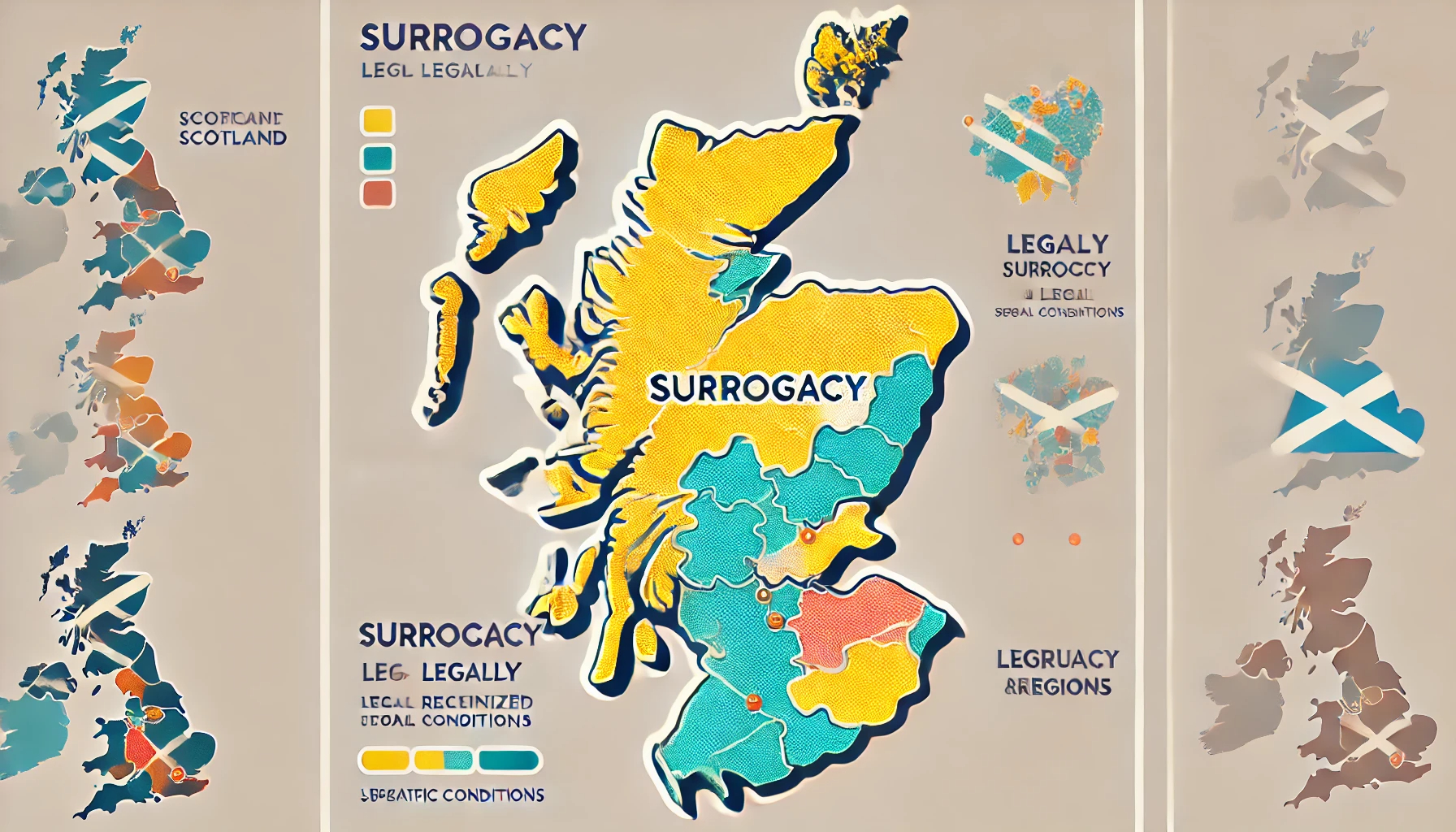
Surrogacy Law in Scotland: Contracts, Surrogate Mothers, and Parental Orders
Surrogacy is increasingly popular in the UK, with Scotland playing a key role in offering surrogacy options under strict legal guidelines. The number of parental orders, a legal step required for surrogacy, has significantly risen in recent years, reflecting the growing demand for this pathway to parenthood. However, navigating the legal landscape of surrogacy in Scotland can be complex. Is surrogacy legal in Scotland? This article will explore the surrogacy laws, contracts, and the process of securing parental rights in Scotland, ensuring intended parents understand the legal framework.

Is Surrogacy Legal in Scotland?
The most pressing question for many intended parents is, “Is surrogacy legal in Scotland?” The answer is yes, but only altruistic surrogacy is allowed. In altruistic surrogacy, the surrogate mother cannot receive any payment for carrying the child, except for “reasonable pregnancy-related expenses.” These expenses can include lost income, travel for medical appointments, maternity clothing, and other related costs. This makes the surrogacy arrangement legal as long as no profit is involved.
While some countries allow commercial surrogacy, pursuing surrogacy overseas can introduce legal and immigration challenges when bringing the child back to the UK. Therefore, it’s important to seek legal advice before making any surrogacy decisions, particularly when considering cross-border arrangements.
Surrogate Mothers and Legal Rights in Scotland
In Scotland, the surrogate mother is considered the legal mother of the child from birth, even if she is not genetically related to the baby. If the surrogate is married or in a civil partnership, her spouse or partner is legally recognized as the second parent, regardless of their genetic connection to the child. This situation holds until a parental order or adoption order is granted.
This means that until legal proceedings are complete, the surrogate mother retains full parental rights and responsibilities. Even if she voluntarily hands over the child to the intended parents, they must still apply for a parental order to formalize their legal rights. The law also allows either the surrogate or the intended parents to change their minds at any point during this process, adding a layer of uncertainty.

Applying for a Parental Order in Scotland
To gain legal recognition as the child’s parents, the intended parents must apply for a parental order. This order can only be granted if at least one of the intended parents has a genetic connection to the child. If neither parent is biologically related to the child, or if they miss the deadline to apply for a parental order, they must apply for an adoption order instead.
The court will prioritize the child’s welfare when considering whether to grant a parental or adoption order, and there is no guarantee that an adoption order will be approved. This legal process can be lengthy and requires careful navigation, which is why consulting with a legal expert familiar with surrogacy law in Scotland is essential.

Surrogacy Contracts in Scotland
In Scotland, intended parents and surrogates can sign surrogacy contracts or agreements to outline their roles, rights, and responsibilities. These contracts provide a written understanding between the parties, but it’s important to note that surrogacy contracts are not legally enforceable in Scottish courts. While surrogacy agencies recommend creating these agreements, they cannot legally compel the surrogate to give up the child or force the intended parents to take responsibility for the child.
Surrogacy agreements can still be valuable for setting clear expectations, but both parties must understand that they hold no legal power. The ultimate decision-making authority lies with the court, particularly in cases where disagreements arise.